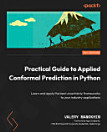Applications of Logic Databases
Dis 2012 · The Springer International Series in Engineering and Computer Science Ibhuku elingu-296 · Springer Science & Business Media
I-Ebook
280
Amakhasi
reportIzilinganiso nezibuyekezo aziqinisekisiwe Funda Kabanzi
Mayelana nale ebook
The premise behind developing powerful declarative database languages is compelling: by enabling users to specify their queries (and their integrity constraints) in a clear, non-operational way, they make the user's task easier, and provide the database system with more opportunities for optimization. Relational database systems offer a striking proof that this premise is indeed valid. The most popular relational query language, SQL, is based upon relational algebra and calculus, i.e., a small fragment of first-order logic, and the ease of writing queries in SQL (in comparison to more navigational languages) has been an important factor in the commercial success of relational databases. It is well-known that SQL has some important limitations, in spite of its success and popUlarity. Notably, the query language is non-recursive, and support for integrity constraints is limited. Indeed, recognizing these problems, the latest standard, SQL-92, provides increased support for integrity constraints, and it is anticipated that the successor to the SQL-92 standard, called SQL3, RECURSIVE UNION operation [1]. Logic database systems have will include a concentrated on these extensions to the relational database paradigm, and some systems (e.g., Bull's DEL prototype) have even incorporated object-oriented features (another extension likely to appear in SQL3).
Nikeza le ebook isilinganiso
Sitshele ukuthi ucabangani.
Ulwazi lokufunda
Amasmathifoni namathebulethi
Faka uhlelo lokusebenza lwe-Google Play Amabhuku lwe-Android ne-iPad/iPhone. Livunyelaniswa ngokuzenzakalela ne-akhawunti yakho liphinde likuvumele ukuthi ufunde uxhunywe ku-inthanethi noma ungaxhunyiwe noma ngabe ukuphi.
Amakhompyutha aphathekayo namakhompyutha
Ungalalela ama-audiobook athengwe ku-Google Play usebenzisa isiphequluli sewebhu sekhompuyutha yakho.
Ama-eReaders namanye amadivayisi
Ukuze ufunde kumadivayisi e-e-ink afana ne-Kobo eReaders, uzodinga ukudawuniloda ifayela futhi ulidlulisele kudivayisi yakho. Landela imiyalelo Yesikhungo Sosizo eningiliziwe ukuze udlulise amafayela kuma-eReader asekelwayo.







